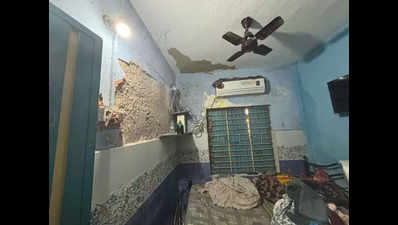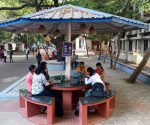Settlements near Kannagi Nagar on the brink of collapse | Chennai News – The Times of India

Chennai: Alcohol bottles strewn around, dingy and damp corridors, broken staircases and leaky ceilings — this is what life looks like for those living at the Tamil Nadu Urban Habitat Development Board (TNUHDB) tenements in Ezhil Nagar, near Kannagi Nagar. There are no CCTV cameras here, allowing substance abuse among youngsters to thrive unchecked.
Ezhil Nagar and Tsunami Nagar, resettlement colonies located in Okkiyam Thoraipakkam, house more than 8,000 families across 43 blocks. These tenements, built in 2013, were meant to provide safe, affordable housing for displaced families. However, they have instead become symbols of neglect and administrative failure. Ezhil Nagar has 6,000 tenements, constructed by the then Tamil Nadu Slum Clearance Board (now TNUHDB) at a cost of 228.60 crore, while Tsunami Nagar has 2,048 tenements, built at 106.11 crore.
Residents say the infrastructure is crumbling. “Ceilings are falling apart, and water leakage from overhead tanks has left walls and floors damp, causing frequent electric shocks. Water seeps from the terrace, making the corridors slippery,” said Manju, a resident.
Beyond infrastructure woes, safety concerns are mounting. “The corridors are always dark, and youngsters sit here drinking alcohol and smoking weed. Even when police arrest them, they return and continue harassing us,” said another woman resident. While TNUHDB installed CCTV cameras in one block, they were stolen.
Many original occupants have abandoned their homes, unable to endure these conditions. “We pay 300 maintenance every month, yet the buildings are collapsing,” a resident complained.
R. Geetha, advisor to the Unorganised Workers Federation, emphasised the need for rehabilitation centres in Kannagi Nagar and Perumbakkam to support families. She also urged the govt to improve water quality, establish after-school care programmes, and treat resettled residents with dignity.
















